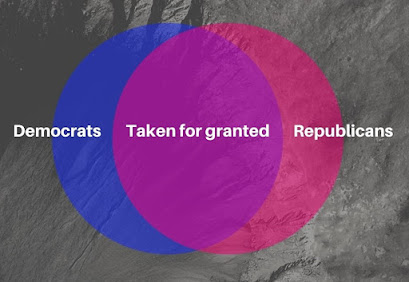I don't want politicians deciding what's exciting in my life.
— David Hockney
Last year I was elected to the board of directors of our HOA by the residents of our development.
No one wants her needs taken for granted.
That fact, I now see, forms the eye of our nation's political storm.
I've been trying for nine months, along with the other board members, to advise a group of 20 neighbors about the peril their homes face.
A commercial developer is about to build a nursing home uphill of them that will cause their properties to flood during rainstorms.
They don't care.
Not a single one of them has responded to the board's many recommendations for a course of action, nor even acknowledged the repeated emails and letters we have sent them.
They don't care.
We have been reading them wrongly.
We've been assuming flooded yards and basements would represent an inconvenience; and that they ought to worry their homes' sale prices will fall.
They don't care.
I see clearly, as a result, the dilemma every politician creates for herself by taking others' needs for granted.
As board members, our duties (which stem from state law) include the "duty of care," which means we must do our homework and make prudent decisions.
We try always to do so.
Where we went wrong in this case was to neglect to ask the 20 homeowners affected if they cared their homes will flood.
They don't care.
Imagine how peaceful the public forum would be if the politicians from both parties ceased taking our needs for granted.
Imaging if they quit deciding for us what concerns us; what we care about and need.
Imagine if they asked every constituent:
Do you need oil wells and coal mines?
Do you need to carry a gun?
Do you need your own bathroom?
Do you need to protect kids from 1619?
Do you need to shelter Jeff Bezos' taxable income?
Do you need to incarcerate every criminal?
Do you need to turn back every immigrant?
Do you need to deny an abortion to a woman you'll never meet?
Do you need to guarantee that food costs less in Cuba, that Palestinians can find jobs, or that Afghanis can read Teen Vogue?
Do you need the federal budget balanced?
Just imagine if the politicians asked us those questions.
They'd find out, like the owners of the 20 homes in my HOA, we don't care. We have totally other needs.







